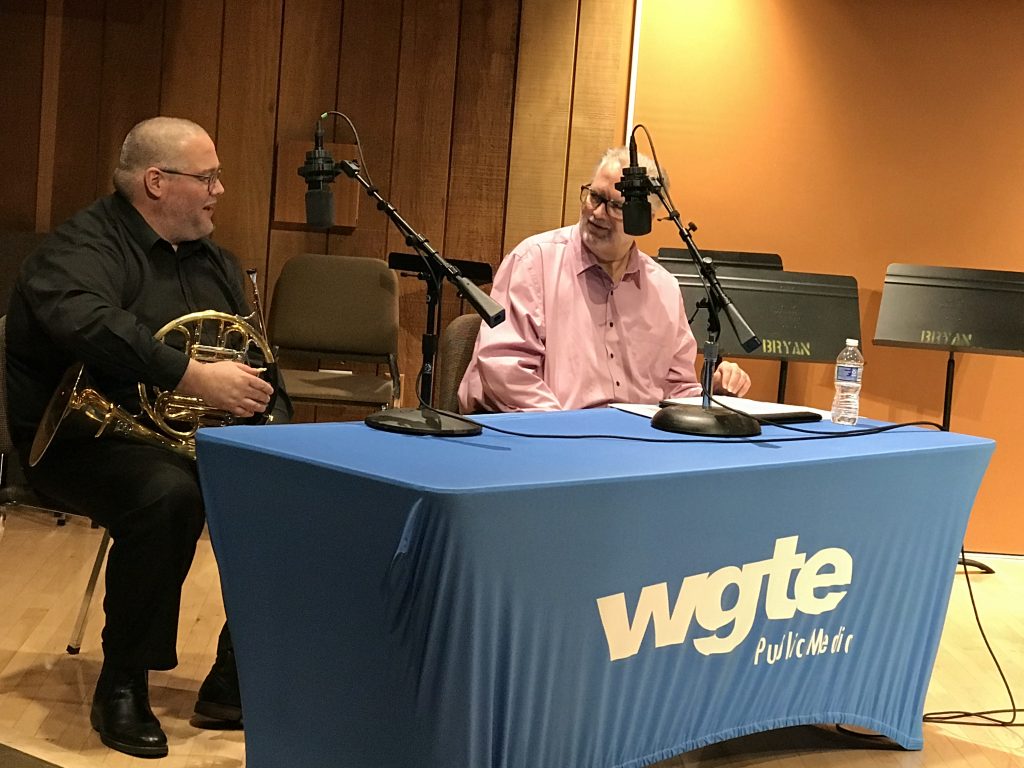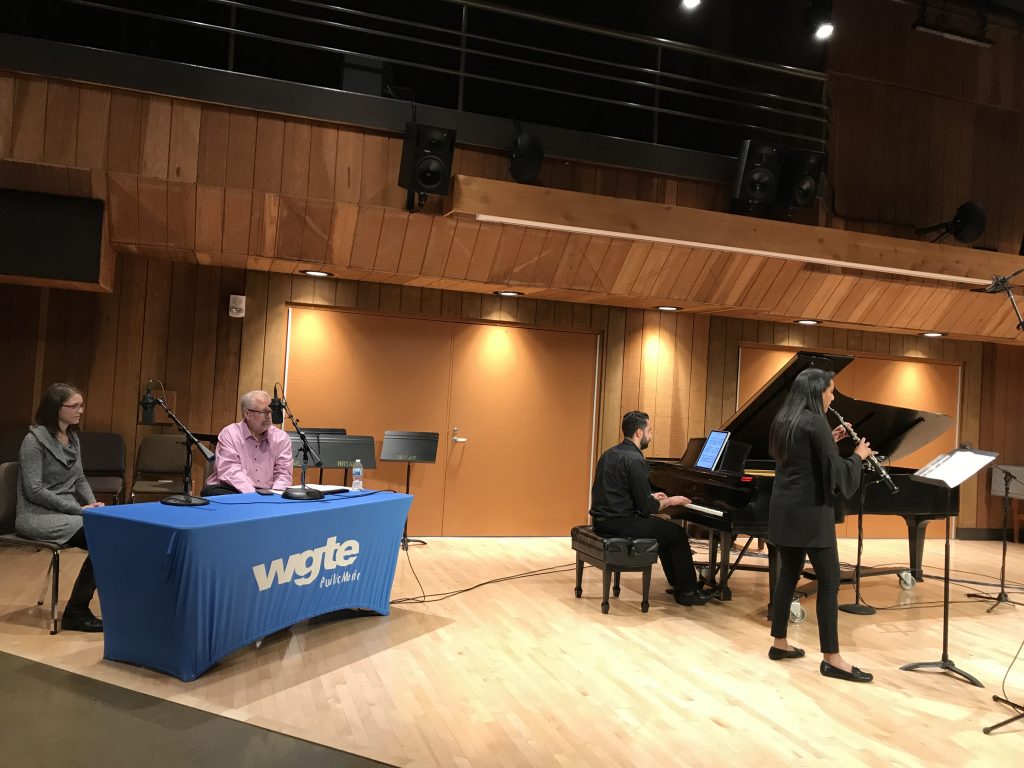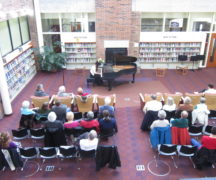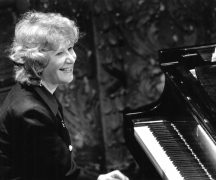By DAVID DUPONT
BG Independent News
The halls of the College of Musical Arts are silent. The walls are decorated with posters for performances that will never happen, all victims of the coronavirus pandemic.
Every Friday at 8 p.m. on WGTE-FM, the program “New Music from Bowling Green” provides echoes of some of what normally resonates through the Moore Musical Arts Center.
The radio program was launched in 2013, the brainchild of Brad Cresswell working with then CMA Dean Jeff Showell. Cresswell, program director at WGTE, is a veteran radio personality and producer.

The idea is to showcase the work of living composers through the lens of the vital contemporary music program a Bowling Green State University. “There was not in a lot on contemporary music radio that had mass appeal,” Cresswell said.
Most of the “NMBG” mine “a huge databank of wonderful performers and composers” recorded at the New Music Festival held every October as well as recordings of other performances on campus.
In February Cresswell visited BGSU to record two episodes during a concert held specifically for that purpose.
The first of the “NMBG Live” aired last Friday. (Listen here.) That program featured: the second Sonata for Horn and Piano by internationally celebrated composer Samuel Adler, now a resident of Perrysburg, performed by Andrew Pelletier; “First Coast Groove,” a rocking piece for solo violin by Piotr Szewczyk, performed by Penny Thompson Kruse; and music for six cellos by Roger Zare.
Pelletier spoke about approaching Adler and telling him the horn community would love a new sonata by him. Two weeks later the piece arrived in Pelletier’s BGSU office.
The second “NMBG Live” episode will air this Friday, March 27.
The program is distributed through Public Radio Exchange and is broadcast on 90 stations. Cresswell said KALW in San Francisco is especially enthusiastic about the program. Cresswell has repurposed older episodes to meet the station’s pleas for more.

Dean William Mathis said that the college has a long history with new music dating back to 1987 when it received a grant to stage the New Music Festival.
From that grew the MidAmerican Center for Contemporary Music, the organizing body behind the festival, said Kurt Doles, a BGSU graduate who directs the center.
Now many people know of BGSU because of the festival and its focus on contemporary music, he said. The radio program is an outgrowth of that.
While at the University of Oklahoma in Norman, recently, Mathis said, he spoke to a composer who mentioned the program. He told Mathis “‘I want you to know how important this is to our profession.’”
The composer assigns his students to listen to “New Music from Bowling Green” and then has them conduct research on those composers. One episode got a student “unstuck” on a project he was working on.
“Sometimes it’s hard to measure the impact of something like this out in the world,” Mathis said. “It was a nice affirmation.”
Pulitzer Prize-winning composer Jennifer Higdon is one of those who is sometimes surprised by hearing her voice and work on the program while traveling around the country, Cresswell said.
BGSU alumna Higdon, whose percussion concerto was just added to the National Recording Registry, has evolved into a co-host with Cresswell for some episodes.
Friday’s program includes three movements of Higdon’s “String Poetic” performed by violinist Caroline Chin and pianist Laura Melton.
Chin, who has performed the composer’s violin concerto and other pieces, said the five-part “String Poetic” reminds her Higdon’s personality. “Like her it’s full of charismatic energy,” Chin said. “I find her to be so warm and so inviting, and I find her music to be the same way.”
Lydia Dempsey is a 2016 graduate of the college, where she studied oboe and piano as well as composition. While she was Bowling Green her oboe teacher Nermis Mieses “kept asking me to write a piece for her, and I finally said ‘yes.’”
The result was “Pas de Deux,” for oboe and piano. Mieses with pianist Xavier Suarez performed it at the “NMBG Live” taping.
The piece has deep roots in Bowling Green. Dempsey said that her fellow BGSU student Sophia Jarrell, founder of the Black Swamp Fine Arts School, asked her to write music for a ballet, which she did. Jarrell encouraged her to take dance classes. “I loved it,” Dempsey said, and the piece reflects what she learned as a dancer.
The program also includes “Chiaroscuro,” a work for solo cello and electronics, performed by cellist Brian Snow with Kuehn watching over the computer.
“About 20 years ago,” the composer explained, “I had this idea to write a series of pieces for one or two instruments processed by live electronics that would create kind of a background accompaniment much like an orchestral concerto for soloist and orchestra. But the background would come straight off the instrument into the computer.”
The sound is manipulated based on a score programmed in the computer, which would then “spits it back out onto the speakers” to accompany the soloist.
The title, he said, refers to the shadowing that visual and musical artists use to make things interesting.
“The cello is in effect a big pencil or paint brush, and the shadows are coming from itself and creating different colors while we hear the piece.”





